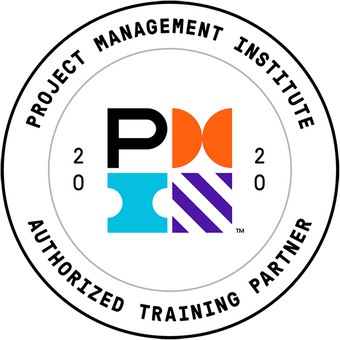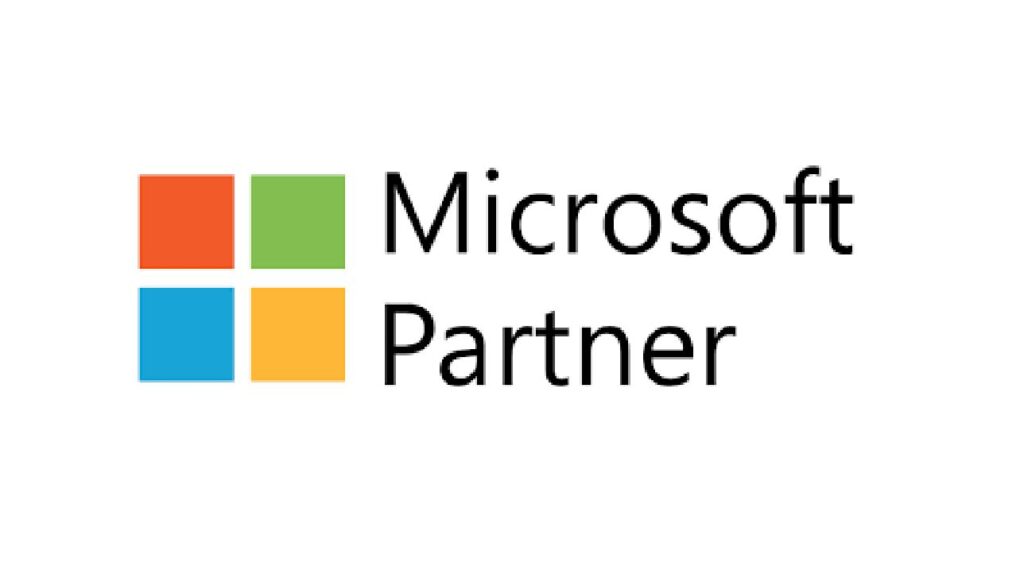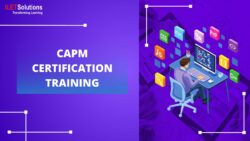By the end of the course, you will have the knowledge and confidence you need to pass the CAPM exam and gain your sought-after certification. Obtaining your certification can help you enhance your career options, boost your salary, and give you the right skills to get better results on your projects. This course provides 26 project management education hours or PDUs to maintain your certification.
In this course, you will learn:
- The requirements and steps for the CAPM application process.
- How to schedule your CAPM exam and what is required for a passing score.
- How to become a more knowledgeable and skilled member of a project management team.
- The five project management process groups of initiation, planning, execution, control and closeout; and the processes within each group.
- The ten project management knowledge areas and the relationship of the processes within each area, including scope, cost, quality and resources.
- How best to use the available PMI resources in addition to this course to prepare for your exam.
Once enrolled, our friendly support team is here to help with any course-related inquiries.
Summary
- Skill level: Beginner
- Lessons: 40
- Video duration: 3h 28m
- Certificate: Yes
- Pre-requisites: None
- Estimated study time: 26h for all materials
Features
Premium video tutorials
Personalized Learning
Learn at your own pace
Tests and Quizzes
Award winning instructors
Get Certified
Mobile - Learn on the go
Regularly updated content
Accreditations & Approvals
All courses under each learning path are accredited and approved by one or more of the following bodies as is applicable.



Instructors
All courses are taught by reputed trainers with relevant accreditations and industry experience.
Modules
CAPM® Credential
The CAPM® is a credential for those entering the project management field or participating on project teams. It demonstrates knowledge of the foundations of project management.
CAPM® Application
CAPM® Examination
PMI® Code of Conduct
The PMI® Code of Ethics and Professional Conduct sets a standard for the profession of project management of what is right and honourable to do.
CAPM® Exam Content Outline
The PMI has provided a guide for all the topics that will be tested on the CAPM® Exam.
PMBOK® Guide
PMBOK® Guide Processes
The PMBOK® Guide has organized project management into 49 processes that are goruped in 5 process groups and 10 knowledge areas.
PMBOK® Guide Glossary
The PMBOK® Guide Glossary provides hundreds of definitions of terms and acronyms used throughout project management and the PMBOK® Guide.
Project Management Foundations
Projects, programs and portfolios are terms that describe an increasing complexity of project related work. Project management addresses how to manage a single unique project not necessarily programs or portfolios.
Project and Operational Activities
Operational activities manage and operate the business processes. Projects interact with operational activities by creating and changing operational processes, products, and services.
The Project Lifecycle
The project life cycle provides a general overview of the phases that a project goes through. The lifecycle for a traditional project is quite different than that for an Adaptive project.
Project Manager
The project manager leads the project team. They orchestrate the project activities to achieve the project goal. This requires the application of leadership skills, technical knowledge or project management skills, and business and strategic skills.
Project Teams and Team Leadership
Project manager’s role and authority is based in part upon the team structure and team leadership requirements.
PMO and Project Governance
The project management office (PMO) is the organizational response for managing the business process of project management. PMO’s are normally responsible for project governance.
Project Management Plan and Project Documents
There are two fundamental categories of artifacts that are created by project management processes in order to aid the project team with the management of the project. One is the project management plan, an integration of management plans from the knowledge areas. The second is a family of logs, registers, reports, and other artifacts collectively known as project documents.
Organizational Process Assets and Environmental Factors
Organizational process assets are the business systems, processes and procedures that are used while managing the project. Enterprise Environmental factors are the constraints and impacts that the business and industry places on the project.
Project Initiation Process Group
The two initiating project management processes define the boundaries of the project and authorize the project manager to start work.
Project Planning Process Group – Part 1
The project management planning processes integrate with each other to create all components of the project plan. There are 24 project management planning processes. Part 1.
Project Planning Process Group – Part 2
The project management planning processes integrate with each other to create all components of the project plan. There are 24 project management planning processes. Part 2.
Project Planning Process Group – Part 3
The project management planning processes integrate with each other to create all components of the project plan. There are 24 project management planning processes. Part 3.
Project Planning Process Group – Part 4
The project management planning processes integrate with each other to create all components of the project plan. There are 24 project management planning processes. Part 4.
Project Planning Process Group – Part 5
The project management planning processes integrate with each other to create all components of the project plan. There are 24 project management planning processes. Part 5.
Project Planning Process Group – Part 6
The project management planning processes integrate with each other to create all components of the project plan. There are 24 project management planning processes. Part 6.
Project Execution Process Group – Part 1
The project management executing processes are managing the majority of the work of the project. There are ten project management executing processes. Part 1.
Project Execution Process Group – Part 2
The project management executing processes are managing the majority of the work of the project. There are ten project management executing processes. Part 2.
Project Execution Process Group – Part 3
The project management executing processes are managing the majority of the work of the project. There are ten project management executing processes. Part 3.
Monitoring and Controlling Process Group – Part 1
The monitoring and controlling processes track the project progress and implement changes and corrective actions when needed. There are twelve monitoring and controlling processes. Part 1.
Monitoring and Controlling Process Group – Part 2
The monitoring and controlling processes track the project progress and implement changes and corrective actions when needed. There are twelve monitoring and controlling processes. Part 2.
Monitoring and Controlling Process Group – Part 3
The monitoring and controlling processes track the project progress and implement changes and corrective actions when needed. There are twelve monitoring and controlling processes. Part 3.
Closing Process Group
The Closing process shuts down a project; either because it has completed or because it has been aborted. There is one closing process.
Project Integration Management
Integrating processes span the other knowledge areas and provide overall project management direction.
Project Scope Management
The project scope is the sum of all the work that must be done on the project. Scope management is focused on defining and controlling what must be done on the project and what does not need to be done.
Project Time Management
Time management processes create and manage the project schedule of activities and milestones.
Project Cost Management
Project Cost Management processes are used to manage and control costs on projects.
Project Quality Management
The Project Quality Management processes are used to implement an organization’s quality management system within a project.
Project Resource Management
The Resource Management processes provide guidance for managing the project team and the management and deployment of physical resources to support the project activities.
Project Communication Management
Communication is at the heart of project management. These processes provide guidance on project communication.
Project Risk Management
Risk management processes guide the project manager and project team in the identification, analysis, response and control of risk.
Project Procurement Management
The Project Procurement Management processes address the contractual issues associated with any purchases made by the project and if the project is done under contract for a customer, these processes address those items also.
Project Stakeholder Management
Project Stakeholder Management is concerned with communicating with project stakeholders in order to understand and meet their needs.
Target Audience
- Graduates exploring placement in the entry-level Project Management positions across industries
- Professionals needing upskilling to be future-ready or become more productive in their current roles
- Experienced individuals exploring CAPM Certification Training roles to join the workforce.
How do I Access The Program
- Buy the course online
- Save your payment transaction receipt for any future reference
- Our team will share the credentials to enable you access your course online within 2 business days of payment transfer
Bulk Orders
Incase you are looking for bulk user licenses, or customized Learning Paths for various Job Roles, reach out to us with your detailed requirements.






Reviews
There are no reviews yet.